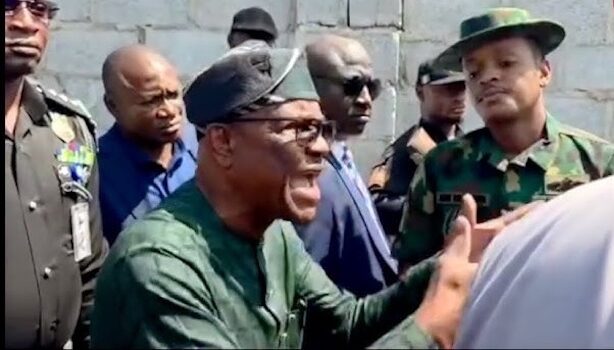By
Author Unknown
RESPONSE TO LT. GEN. TUKUR BURATAI (RTD): THE IGNORANT YOUNG OFFICER AND THE CONSTITUTIONAL ORDER

The comments credited to Lt. Gen. Tukur Buratai (Rtd.) in response to the events of November 11, 2025, are not only misleading but dangerously uninformed about the structure of executive authority in the Federal Republic of Nigeria. His conclusion that the Minister of the Federal Capital Territory, Barr. Nyesom Wike, posed a “clear threat to national security” by reprimanding a uniformed officer is a distortion of constitutional reality and a misrepresentation of the lawful hierarchy of authority under civilian rule.
It is necessary, therefore, to restate the relevant constitutional provisions and place this matter in its proper context.
1. Executive Powers and Delegated Authority
Under Section 5(1) of the Constitution of the Federal Republic of Nigeria (1999) (as amended),
“The executive powers of the Federation shall be vested in the President and may be exercised by him either directly or through the Vice-President and Ministers of the Government of the Federation.”
Similarly, Section 148(1) provides that:
“The President may, in his discretion, assign to the Vice-President or any Minister of the Government of the Federation responsibility for any business of the Government of the Federation.”
Furthermore, Section 144(5) clarifies that:
“The Executive Council of the Federation” refers to the body of Ministers established by the President and charged with such responsibilities for the functions of government as the President may direct.”
These sections establish a clear chain of command. The President’s authority flows directly to his Ministers, who act as constitutional extensions of his executive will. Their directives, once issued within the scope of their assigned portfolios, carry the same constitutional weight as if issued by the President himself.
2. The Hierarchy of Orders Under Civil Authority
Every member of the Nigerian Armed Forces is constitutionally bound to obey the lawful directives of the President, who is the Commander-in-Chief of the Armed Forces. When a Minister acts under presidential delegation, his or her instructions represent the operational expression of the President’s authority.
Therefore, no military officer, however junior or senior, has the discretion to disregard or contradict a directive issued through a Minister acting within constitutional authority. To do so would constitute gross insubordination to the President himself.
3. The Misplaced Outrage
Lt. Gen. Buratai’s description of Minister Wike’s conduct as “reckless endangerment of national order” is both erroneous and ironic. The real threat to national security arises when uniformed officers, out of ignorance or miseducation, refuse to recognize constitutionally delegated authority. That is the seed of mutiny and institutional breakdown.
The young officer in question acted in open defiance of lawful civil authority. That act, not the Minister’s reprimand, is the violation that endangers the chain of command and undermines the Commander-in-Chief’s constitutional prerogative.
4. The Lesson to Be Learned
It is high time the Armed Forces review their civic education curricula to ensure that every officer, from Cadet to General, understands the meaning and scope of executive powers and delegated authority in a democracy. Soldiers are not to operate by sentiment or by the misplaced loyalty of a retired officer’s interpretation. They are to operate by the Constitution.
The Constitution is explicit:
“All executive powers of the Federation shall be vested in the President”
and
“may be exercised by him through his Ministers.”
That is the order of the Republic.
5. Conclusion
No Minister acts on personal impulse. Every act of executive enforcement or oversight derives from the constitutional authority of the President. To challenge that authority, whether by ignorance or by design, is to challenge the Commander-in-Chief himself.
The ignorant young officer must therefore be disciplined, not celebrated. And those who, like Buratai, misrepresent the structure of civilian control over the military should be reminded that in a democracy, the Armed Forces serve under the law, and the law serves the Constitution, not retired officers.
In summary:
The Minister’s actions were constitutionally valid and defensible. The officer’s defiance was unlawful and insubordinate. The Constitution, not retired sentiment, must prevail.
# COPIED

